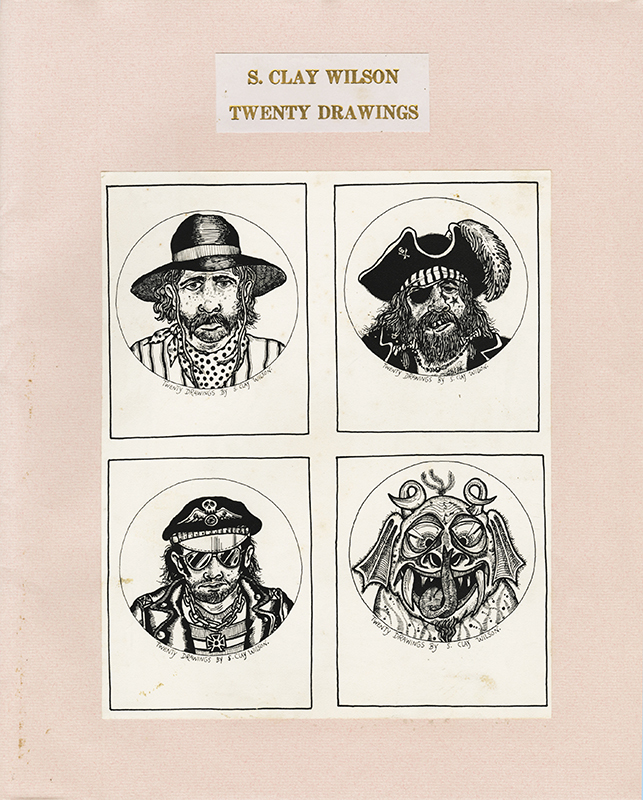
19th, 20th & 21st Century Fine Prints
707-546-7352 · fax 707-546-7924 · web: www.annexgalleries.com · email: artannex@aol.com
Twenty Drawings (Deluxe Portfolio) by S. Clay Wilson

Twenty Drawings (Deluxe Portfolio)
S. Clay Wilson
Twenty Drawings (Deluxe Portfolio)
S. Clay Wilson
1941 - 2021This rare Deluxe Portfolio of S. Clay Wilson’s Twenty Drawings, was published in 1967 by The Abington Book Shop in Lawrence, Kansas. Twenty "dense pack" drawings and four miniature cartoon portraits by Wilson were printed offset and published by beat poet Charley Plymell (printer of the first issue of Zap Comics). The reproduced drawings, all approximately 11-1/2 x 13-1/2", were included loose-leaf in the portfolio. The portraits (a cowboy, a pirate, a demon, and a biker) were used in rotation as cover illustrations for the regular edition, approximately 100 portfolios per "portrait". The Deluxe Portfolios, of which only twenty-five were produced, included all four drawings on one sheet of paper, tipped onto the pink-tinted Strathmore Artist laid paper cover. Included with this portfolio is the rarely found colophon sheet with copyright, publisher, and original price.
The chaotic, no-holds-barred Twenty Drawings portfolio, which blatantly defied the postwar Comics Code Authority, is sometimes credited with launching Wilson from Kansas-based underground darling to internationally recognized counterculture phenom within a year of its publication. By the time he reached San Francisco in 1968, R. Crumb already knew of this portfolio and invited Wilson to contribute to Zap. Arguably the more well-known artist today, Crumb nevertheless credited Wilson with popularizing Zap with his outrageously controversial work, and for inadvertantly pushing Crumb to develop the style he would become famous for. In an interview, Crumb would state: "[Zap] didn't get that explicity outrageous. That kind of happened after meeting Wilson. The guy was just completely unleashed, totally. ...No one had ever done that before. Ever."
